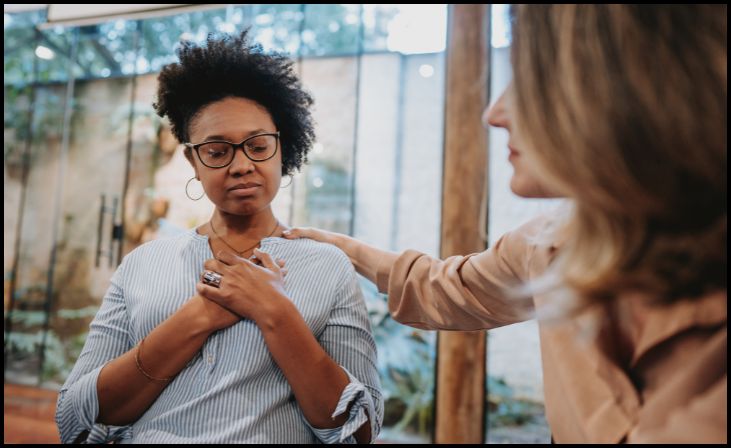Are you considering therapy but unsure if group sessions are right for you? Group therapy offers a unique and effective way to address various mental health challenges while fostering a supportive community. Unlike individual therapy, group sessions bring together individuals facing similar issues, creating a safe space for sharing experiences and insights. This blog explores the numerous benefits of group therapy, from building connections to gaining diverse perspectives. Whether you’re navigating anxiety, depression, or relationship issues, group therapy can provide valuable emotional support and practical coping strategies. Join us as we delve into how group therapy sessions can empower you on your journey towards mental well-being.
9 Amazing Rewarding Benefits Of Group Therapy
Emotional Support and Validation

Group therapy provides invaluable emotional support by connecting individuals who share similar struggles. Finding solace in the knowledge that they are not alone in their circumstances helps participants feel understood and validated. Through sharing personal stories and empathizing with others, members can feel validated in their emotions and challenges. This mutual support network helps build resilience and reduces feelings of isolation, promoting emotional well-being.
Shared Experiences and Learning Opportunities
One of the significant advantages of group therapy is the opportunity to learn from shared experiences. Members can gain insights and perspectives from others facing similar issues, which can be enlightening and empowering. Hearing different viewpoints and coping strategies can broaden one’s understanding of their own situation and provide practical solutions for managing challenges.
Diverse Perspectives and Feedback
Group therapy encourages the exchange of diverse perspectives among members. This diversity enriches discussions and allows individuals to see their problems from new angles. Feedback from peers can offer fresh insights and alternative approaches to issues that may not have been considered in individual therapy. This broadened perspective often leads to personal growth and enhances problem-solving skills.
Also Read – Key Benefits of Mental Health Therapy
Development of Social Skills

Participating in group therapy can improve social skills and interpersonal relationships. Members practice communication, active listening, and conflict resolution within a supportive environment. These skills are transferable to everyday interactions, enhancing personal and professional relationships outside of therapy sessions. Group therapy provides a safe space to experiment with new social behaviors and receive constructive feedback from peers.
Sense of Belonging and Community
Group therapy fosters a sense of belonging and community among its members. Connecting with others who share similar struggles can reduce feelings of loneliness and alienation. Group members often develop strong bonds through shared experiences and mutual support, creating a supportive community where everyone feels accepted and understood.
Peer Accountability and Motivation
The group dynamic in therapy sessions encourages accountability and motivation. Members can set personal goals and receive encouragement from peers to work towards them. Knowing that others are facing similar challenges can inspire individuals to stay committed to their personal growth and therapeutic journey. Peer support and encouragement often reinforce positive behaviors and foster a sense of accomplishment.
Cost-Effectiveness
Individual treatment sessions are often more expensive than group therapy. Sharing the therapeutic hour with multiple participants allows therapists to offer services at a lower rate per person. This financial benefit makes therapy more accessible to individuals who may not be able to afford private sessions, ensuring that mental health support is available to a wider range of people.
Real-Life Application of Skills
Group therapy provides opportunities to practice coping skills and strategies learned in therapy sessions in real-life situations. Members can receive feedback and support from peers as they apply new behaviors and techniques outside of the therapy setting. This practical application helps reinforce learning and increases the likelihood of sustained positive change beyond the therapy group.
Long-Term Support Network

Group therapy often results in the development of a long-term support network. Participants may continue to stay in touch and support each other even after the formal therapy sessions have ended. This ongoing support network can provide companionship, encouragement, and understanding during challenging times, further enhancing the benefits gained from group therapy.
These nine benefits illustrate why group therapy is a rewarding and effective approach to addressing various mental health challenges. Whether seeking emotional support, learning new skills, or developing meaningful connections, group therapy offers a supportive environment where individuals can grow and heal together.
Also Read: 9 Valuable Benefits of Couples Therapy
Conclusion
In conclusion, group therapy offers a powerful framework for healing and personal growth. Through shared experiences and mutual support, participants not only find validation but also acquire new coping skills and perspectives. The community aspect of group therapy fosters a sense of belonging and reduces feelings of isolation. Whether you’re seeking emotional support or practical advice, group therapy can be a transformative journey towards better mental health. Embrace the benefits of group therapy and discover how it can empower you to navigate life’s challenges with resilience and strength.
FAQs
What are the main benefits of group therapy?
Group therapy offers benefits such as emotional support, shared experiences, and learning from others facing similar challenges.
Is group therapy as effective as individual therapy?
Group therapy is often as effective as individual therapy, offering unique advantages like peer support and diverse perspectives.




